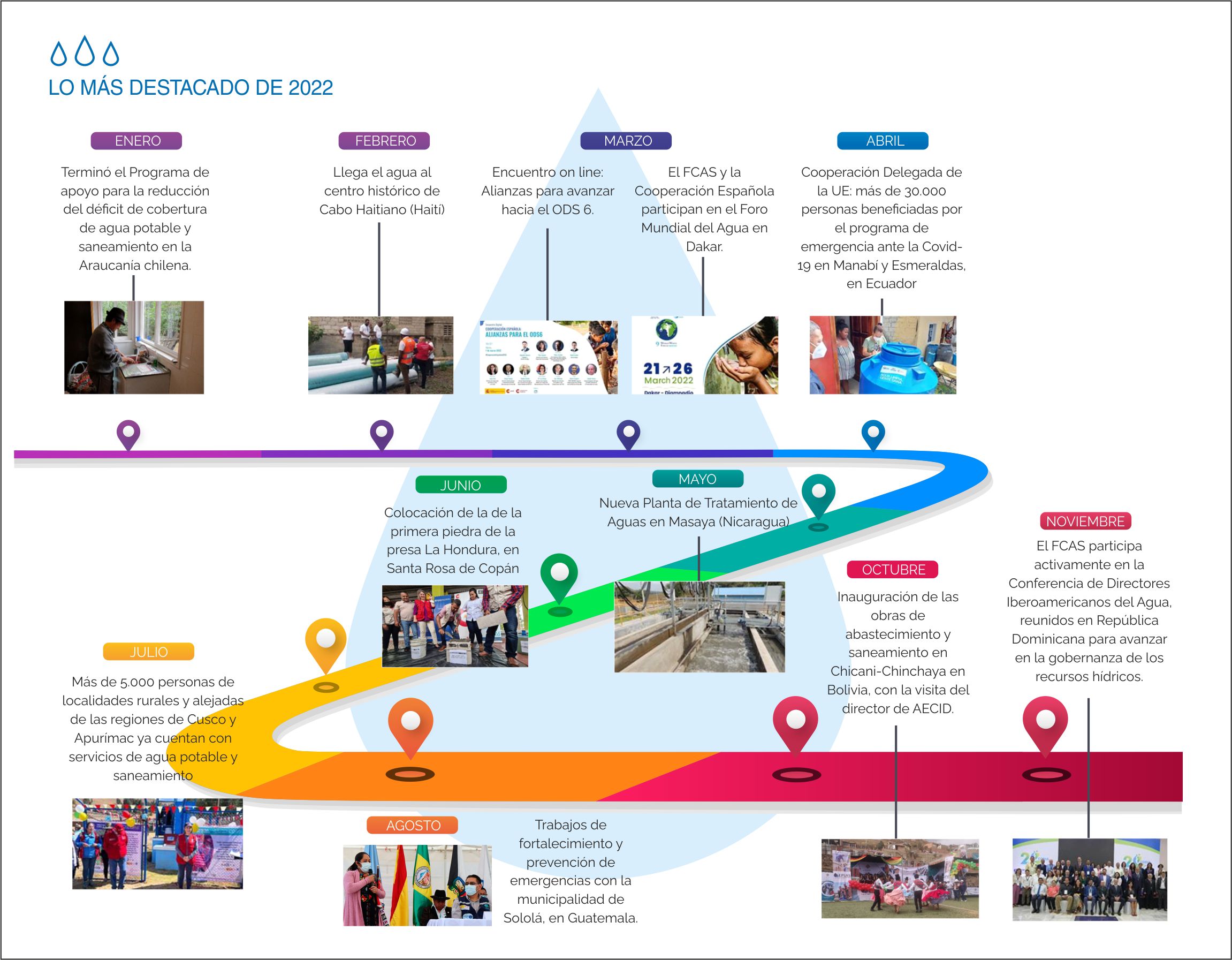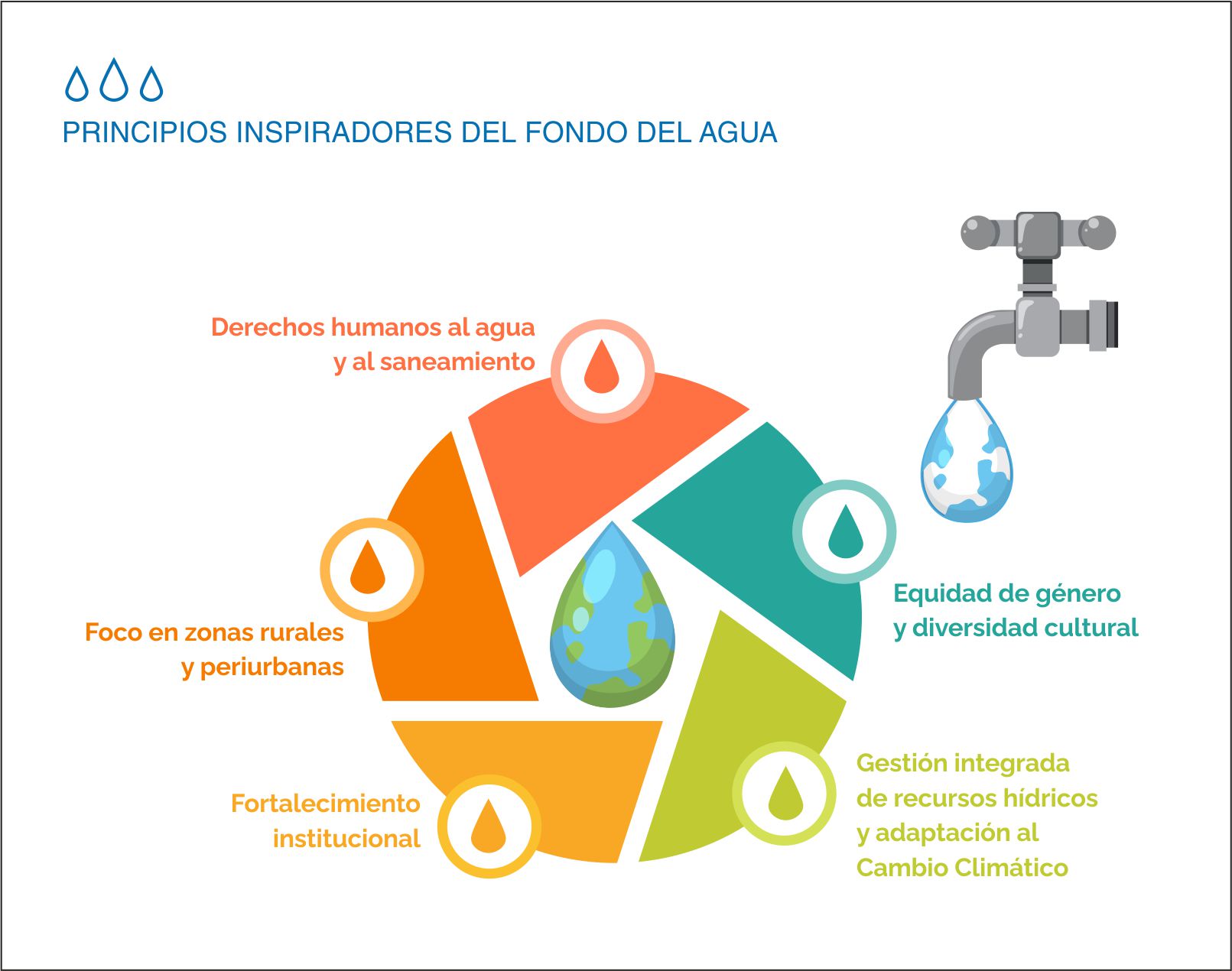Introduction
The results are now beginning to reveal a trend. The number of beneficiaries is not growing as rapidly as in the Fund’s early years. However, other indicators, such as training, the number of people sensitized, the number of operational and management documents, and other matters involving support for the development of public policies, have seen significant growth. This is because the new initiatives focus on issues that go beyond the provision of water and sanitation and are centered on technical and institutional support, the promotion of Integrated Water Resources Management, and the development of plans and regulatory and strategic frameworks that improve the overall management of water and sanitation in the regions concerned and enhance the sustainability of such initiatives.
In addition, 2022 has also seen the completion of several projects that began some time ago. Among others, the program carried out in rural communities of the Mancomunidad del Río Santo Tomás (AMSAT), Cusco, and Apurímac in Peru (PER-029-B) came to an end; in Chile, the drinking water and sanitation coverage program in rural areas of Araucanía (CHL-001B) and the Dominican Republic, the Drinking Water and Sanitation Investment Program (DOM-001-M) came to a close. There were also two other initiatives completed in Nicaragua and Colombia.

As well as work conducted in the field with partner countries, the Fund has also participated in national and international meetings to share experiences, learn about innovative approaches, and establish alliances. The Fund was at the World Water Forum in Dakar, the region’s largest sanitation meeting, Latinosan (held in Bolivia), and the Conference of Ibero-American Water Directors (CODIA). In addition, it participated in seminars on financing for water security and the Human Rights to Water and Sanitation. It organized its event with key stakeholders to advance towards SDG 6. As a result, the work of the FCAS was recognized with the iAgua ODS award for its work to reach the Sustainable Development Goals. In short, it was a remarkably successful year, from which we would like to highlight some milestones:
Inspiring principles of the Water Fund
The Water Fund promotes the practical realization of the Human Rights to Water and Sanitation, with particular attention given to the most disadvantaged populations, particularly those living in rural and peri-urban areas. The Fund’s interventions have been incorporating the gender approach for more than a decade, promoting the inclusion of women in decision-making bodies on water and sanitation and their empowerment through social components of the programs. It also strives to incorporate the values and knowledge of indigenous peoples based on respect for cultural diversity and their institutions.
In addition, the FCAS promotes the institutional strengthening of partner countries, deepening public policies, sectoral planning, and Integrated Water Resource Management to improve the sustainability of water and sanitation systems and promote global water governance. This helps mitigate the effects of climate change and boosts the resilience of populations, favoring adaptation measures to extreme events, such as droughts and floods.



